THE VISIONARY ISSUE

 Fido & Margot
Fido & Margot


 Fido & Margot
Fido & Margot
“Our School,
Words.” That was what I pitched to Miss Wallace in September of 2022 for the creation of Queen’s Gate’s first Literary Journal: 1891. Flashforward to March of 2023, and I am writing my first Editor’s Letter of (hopefully) many more to come. I can’t quite fathom how excited, exhausted and inspired I feel at the same time. A whole term of meetings produced this first issue, one that is filled with such substance and a real sense of voice, all from a dedicated team of writers whom I am so honored to be writing alongside. All of us entered 1891 with a passion for writing and dreams of becoming writers one day. That has not changed, except for the fact that a dream to become a writer feels so subjective. When can you truly call yourself a writer? The pure act of all of us putting our inner voices onto the page seems true enough; you are a writer as long as you are actively writing. Our first issue is titled ‘The Visionary Issue’. A bold, and perhaps ambiguous, entrance - we know. But it captured what we all wanted our first issue to embody: a collection of our visions, for the school and the wider world, that allow us to shape our future. Whilst our team of writers and editors all wrote pieces, we were lucky enough to have received a vast array of submissions from across the school as well – named and anonymous – that only add to the character and sense of community that we hope 1891 represents’. Art from QGs own dazzles throughout this issue as well, which we curated to illuminate the embracing nature of this Journal. Our school’s first Poet Laureate, Coco Shao (Form IV), opens this issue with her powerful poem ‘What We Envision’; words that latch onto the possibility and hope that the future holds, if us humans choose that path - “After light, darkness will always follow/Yet our choices are what mark tomorrow.”
This issue steadily emerges into one which celebrates womanhood – which we felt was fitting as International Women’s Day fell during the Spring Term and is especially valued in an all-girls school. It also felt like the perfect subheading to Visionary – women have so powerfully proven throughout history to be real changemakers, and despite them not all being from literary fields, the humanity of their words is what enabled and drew change towards them. Words hold such meaning, such gravity, and this belief is what 1891 is built upon. Start reading through this issue and hopefully you will be engrossed by the selection of pieces our first issue has to offer, such as a critically eloquent commentary on Frantic Assembly’s Othello, storytelling told through film, having a choice being questioned by women today as Roe v. Wade is overturned, and enthralling short stories and poems. 1891 is the home to Queen’s Gate’s creativity made and told by the students. So much gratitude is owed to Miss Wallace, who welcomed the creation of 1891, and, of course, to Miss Cappella, who is this journal’s supervisor and real girlboss of the team.
What is your vision?
Gioia Duenas-Dahms
Gioia Duenas-Dahms Editor-in-Chief & Creative Director
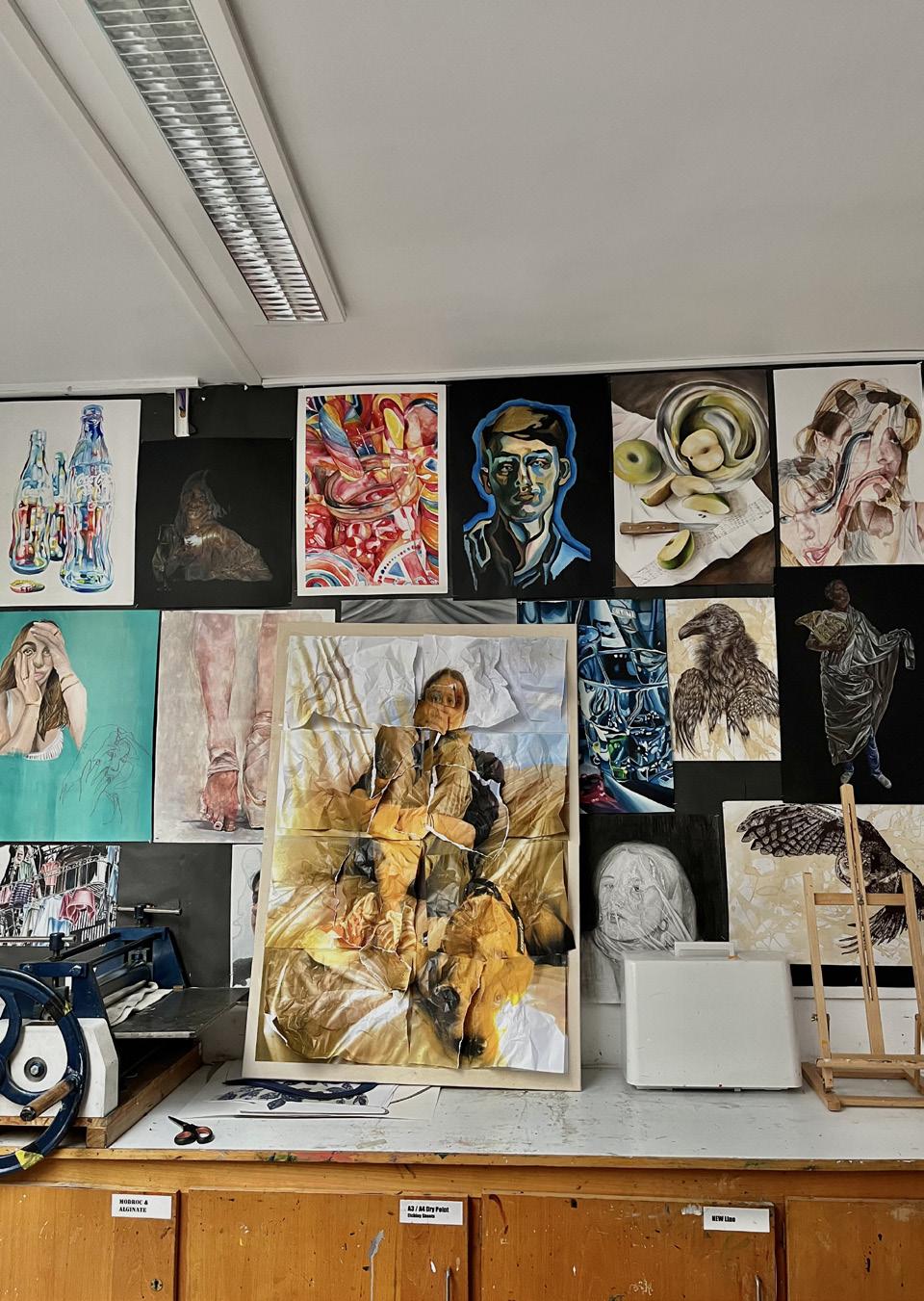
Miss Cappella Journal Supervisor
Alessa Lindblad-Hill Staff Writer
Cecily Morrissey Staff Writer
Guest Writers
Coco Shao Poet Laureate
Stella de Caro
Lara Villar-Homer
Ophelia Mayhew Staff Writer
Tiana Wadhawan Staff Writer
Valentine Matussiere Communications
Zeina Hosni Communications
What We Envision
Coco Shao
Her Principles: Wading the Way With Strength and Self-Respect
Gioia Duenas-Dahms
An Unbeguiling Night
Cecily Morrissey
Imagination
Stella de Caro
Bond, Skywalker & Corleone: More Than Just Screen Icons
Alessa Lindblad-Hill
The Creature Anonymous Untitled Lara Villar-Homer
To Meat Or Not To Meat - Is That the Question? Miss Cappella
A Choice Lost to The What If Gioia Duenas-Dahms
A Path of Hues
Tiana Wadhawan
Punk, Parisian and Peachy
Ophelia Mayhew
She of the Floating World Anonymous
Period 10: Miss Cappella
Tiana Wadhawan
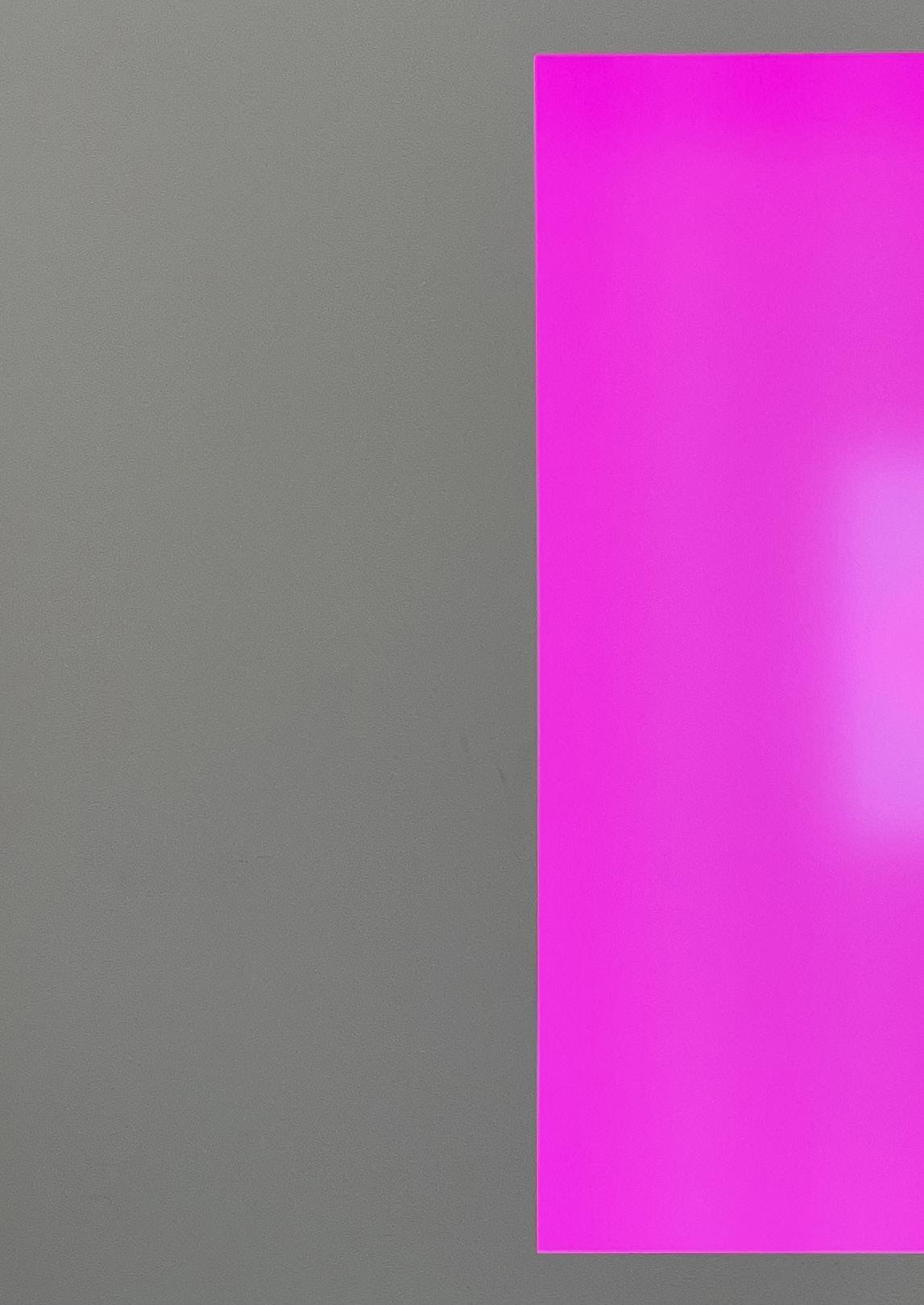 Awakening (2006), James Turrell Frieze Art Fair, London 2022
Photographed by Gioia Duenas-Dahms
Awakening (2006), James Turrell Frieze Art Fair, London 2022
Photographed by Gioia Duenas-Dahms

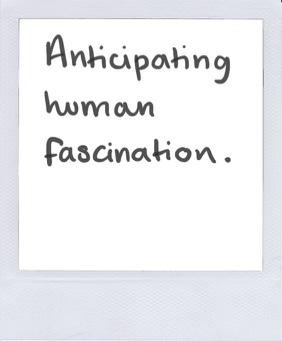

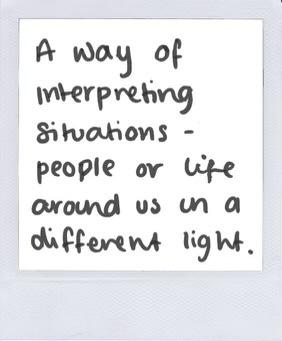
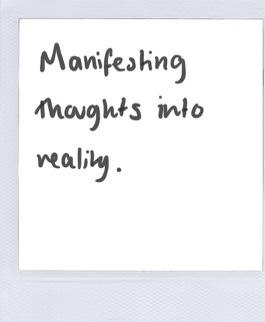
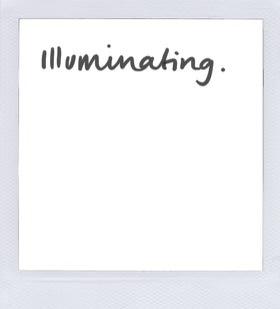
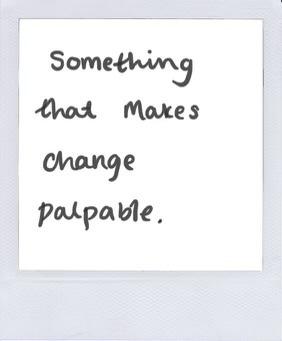
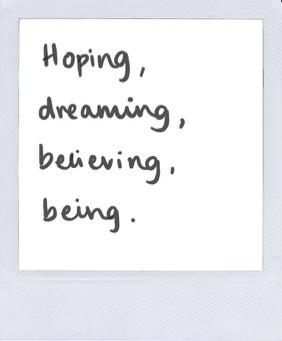
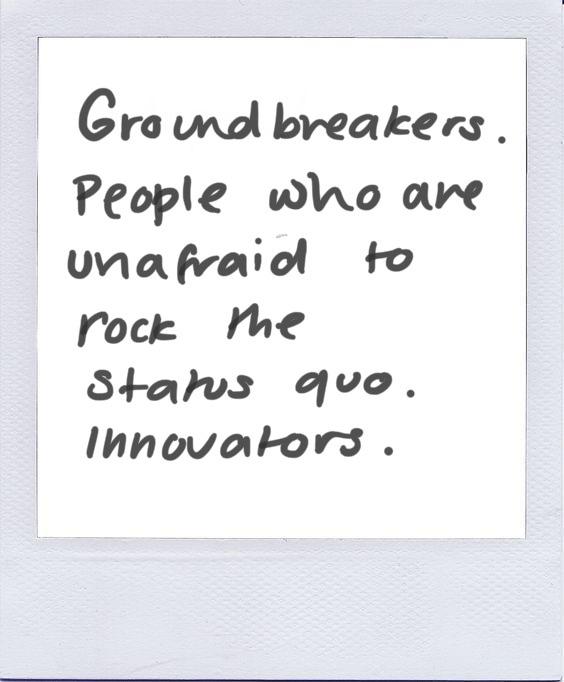
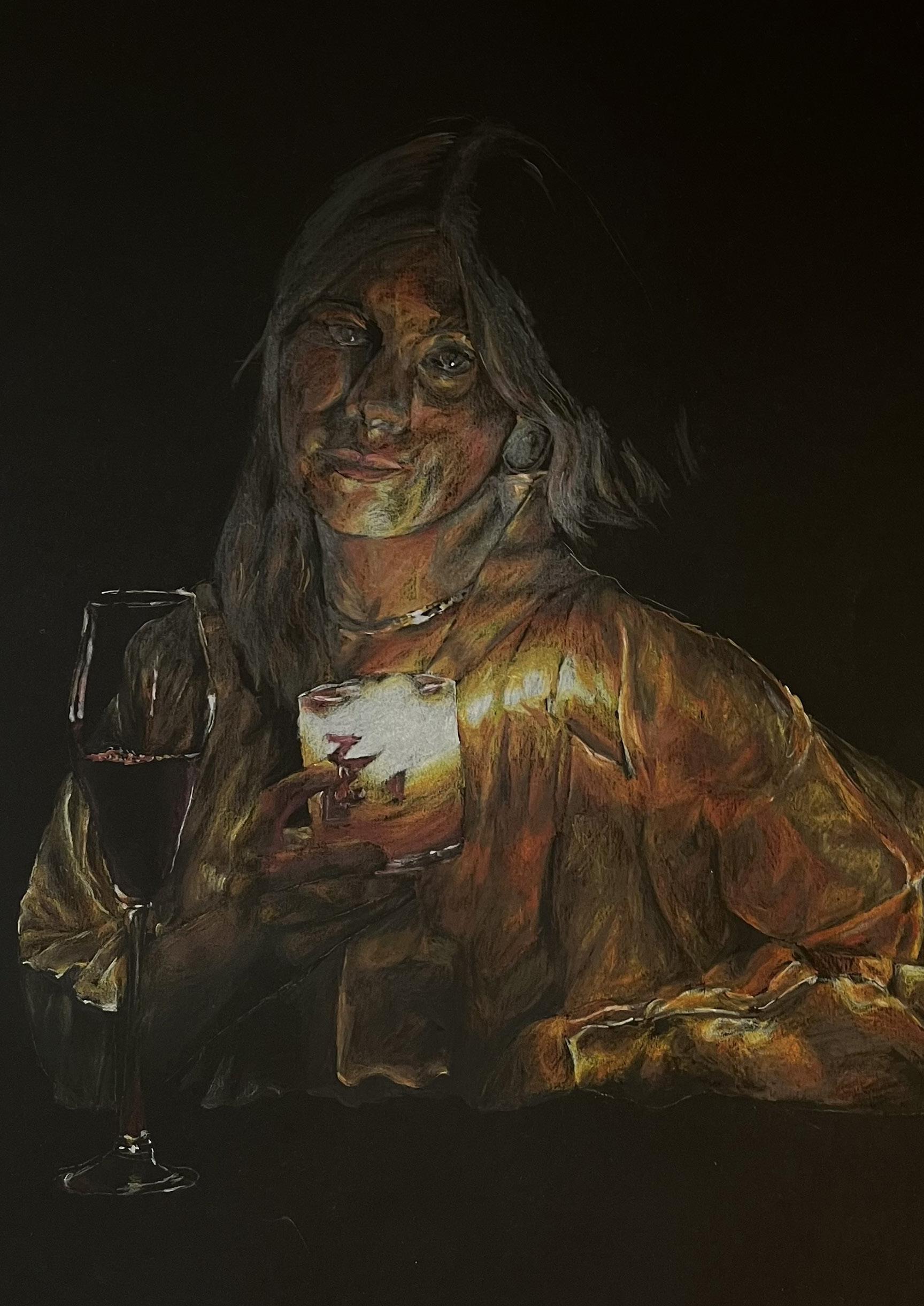 Zoya Edwards
Zoya Edwards
From vague descriptions, From everlasting fears, From light comes the darkness we all dread. The once blue sky, The once green earth, A dulling gray behind our backs. We ourselves leave our footprints, Yet the wind holds the blame.
The past holds us in its arms, Entangling us in its weary grasp. History has its claim on us For past mistakes we have made. Great triumphs and great remorse set us upon this path today.
The present brings fond memories to heart, Technology’s wings we shelter beneath. The hopes of ancestors rest on our shoulders, The future of the earth is within our reach. What is our fear but damage to great, Unable to be undone, unable to be forgotten.
They always say future brings hope, Yet it also brings great unknowns. Uncertainty and facts trim their sails, Leaving us trailing in their wake, As the earth trails in ours, All spluttering and gasping for air.
They say to change when the future comes, Yet when it comes it will be too late. Let hands unite to speak our oath, Every choice we make changes our path. After light, darkness will always follow, Yet our choices are what mark tomorrow.

The past few years have been a time of immense change: the world, together, went through the Covid-19 pandemic; huge political changes occurred simultaneously, as the UK underwent three different prime ministers in one year; Putin invaded the Ukraine in February of 2022; Queen Elizabeth II passed away in September of 2022. Equally so, Queen’s Gate
lived through a huge change of its own, as we welcomed our new Principal, Miss Wallace. Being in the Principal’s office can be for one of a few limited reasons: you might have dug yourself into a deep hole that you’re trying to get out of, or you might receive congratulations for outstanding news. I was there for a different purpose though – the rare exception – one where roles were switched for
photoHezyTek Productions Gioia Duenas on Miss Wallacethirteen minutes, as I conversed with Miss Wallace on empowering us girls to be unafraid to use our voices, the sanctuary of her kitchen and her visions for Queen’s Gate. I was nervous walking up those pale blue velvet stairs. I peered into Miss Goddard’s office to give her a friendly wave. She indicated I should go wait on the three, artefact-worthy chairs just outside her office, as Miss Wallace finished chatting to visiting parents. Just next to the chairs is the opening to the library annex where Sixth Formers are busily attending to their A-levels, and I can hear their quiet whispers as I go over the questions I will ask in my head. Soon, Miss Wallace comes out and greets me warmly as we walk into her office. With art made by QG students framed and hung around the room, and fresh flowers accompanying endless shelves of books, Miss Wallace’s office was embracing and felt like a place of possibility. Immediately, I was brought back to my meeting with her in September of this school year, when this Journal was merely a concept, awaiting the stamp of approval to become a part of this school. The conversation naturally began with me asking what led Miss Wallace to Queen’s Gate. Confidently she replied, explaining how she wanted to take up a headship role, especially after being a senior deputy for so long: “I wanted a new challenge and I also wanted to be able to run my own school, bringing in my own ideas and thoughts”. Queen’s
Gate is a journey, in the sense that it starts from four and ends at eighteen, and this really attracted Miss Wallace, as she explains, “I think being a part of a school where you’ve got everyone from teeny-tinies, age four, to your big girls, eighteen, about to go off into adult life, is such a fascinating and rewarding experience.” Having grown up from age four in this school, I can only vouch for the comfort that a school where you can go through all stages before adult life is momentous. Miss Wallace
also gravitated towards what she heard about this school’s “individuality, its focus on creativity, this idea that we want everyone to do as well as they possibly can, but we’re not going to do it with a ‘hothouse’ pressured atmosphere. That all absolutely sat in line with my own ethos about what education should look like.” And it was because of this that she thought to herself when meeting the Governors during her second interview, “I really want to be working with them.” Soon enough, December came around, and already whispers trailed throughout the school about sightings of a ‘young, blonde woman’ walking out of Mrs Kamaryc’s office, and ‘could she be the new Principal?’, when Miss Wallace got the call to say that she had been offered the job. Humbly, she adds, “it was
“it was partly me choosing Queen’s Gate, but it was also very much Queen’s Gate choosing me.”
partly me choosing Queen’s Gate, but it was also very much Queen’s Gate choosing me.”
It was a sunny Tuesday when I held this interview with Miss Wallace, just after my morning Biology class. We are approaching the final term of Miss Wallace’s first year at Queen’s Gate, and already it feels like she has adopted a signature look to compliment her perky bob – a haircut I can truly recommend as well (although mine is out of virtue of not being able to pull off long hair). Whether you see Miss Wallace during assembly twice a week, or as you are finding your way to lessons, you might have noticed the chic collection of blazers and wide cut pants she often wears –usually with a pop of color, like orange, embodied in a sweater. Up close in this interview, I noticed her subdued earrings that had small pearls dangling from them. As a strong believer of the saying ‘look good, feel good’, I admire
when women in positions of power compliment their stamina with good style. ‘Style is character’ after all, as Joan Didion writes.
In Miss Wallace’s response as to why she applied to Queen’s Gate, one of her immediate answers was “I knew I wanted to be in a girls school. I really care about girls’ education.” It feels like a necessity for an all-girls school to
be run by a female head, as this environment of sisterhood can truly glow. I was curious to see what this meant for Miss Wallace – whether this comes with natural thought, or gratitude, or both. In her words, Miss Wallace reflects on this and comments on how it consists of a “real ambition” for us to go into life knowing that “nothing is closed to you because of your gender,” and as well as this, being “geared up for whatever the world might throw at you, in terms of slightly misogynistic attitudes.” This brought Miss Wallace to remember a significant moment in her early life, just as she leapt into adulthood, when she worked at an office for a summer job during her third year at university. She recalls one of the boys in her office turning to her and saying, “‘Oh, you’re going to make somebody a great assistant one day.” She was quick to reply, asking, “Why wouldn’t I be the person?” which, as she explains, confronted her with the “assumption that because I was female, even though I was going to be really highly educated, I was ultimately always going to come second to a man.” This implication was one that informed Miss Wallace about the need to empower the girls she has the privilege to teach and lead: “It’s about making sure you’ve got your shield, you’re ready for that, you’re ready to fight against those attitudes, you’re ready to not let those attitudes get you down.” Miss Wallace also discussed with me how being a female head of an all-girls school
“there’s lots of different types of womanhood...there’s no one-size-fits-all.”
means “role-modelling and showing that there’s lots of different types of womanhood, that there’s no one-size-fits-all.” Ultimately though, Miss Wallace realizes that being the Principal also boils down to “being one of the girls [with us]” and, “thinking about what I would have enjoyed when I was your age and how I can share that with you as well,” – showing a true sense of community being championed.
Assemblies each week are memorable and refreshing. From being asked what unites Jacinda Ardern, Nicola Sturgeon and Miley Cyrus, to actively engaging with the politics of daily life, Miss Wallace always comes back to one overarching point: how history is definitive of the moment. Miss Wallace’s well-known love for history became a shaping force in her life more unexpectedly than anticipated. Initially, Miss Wallace was going to take Classics at university, and she chuckles when she tells me how, “I chose History, almost by default – goodness, my teacher would be very disappointed with me.” For her, History provided something that Classics ultimately could not: an everlasting sense of modernity and a little bit of I told you so, when the present does not feel so detached from the past. She took her love for “the translation, the puzzle, the kind of sudoku of trying to get the words to turn out,” from Classics and developed that in History, which she finds is filled with “the best stories.” This mental agility is what she found most invigorating, as she learnt to reassess every situation and not be afraid to ask the what if. This built the basis for Miss Wallace’s fascination of “being able to put myself into different positions,” which she utilizes more often than not, possessing the most decision-heavy job in the school. She emphasizes, the “yes, but -” that
people might ask, when she comes forward with new ideas; she believes in “adopting different positions so that the plans we put out, we’ve thought really carefully about what everybody’s needs might be and how we can message them.” Miss Wallace evaluates her love for history to be emblematic of her “tendency to look to the past for examples of blueprint – where do we think things might go? We’ve seen this incident in the past, what happened next? How can that inform what might happen next?” and ends, by quoting Mark Twain’s infamous “history doesn’t repeat itself, but it does rhyme.” It’s lonely at the top. This saying is used for a reason, and whilst I could, I wanted to shift the narrative slightly and find out about Miss Wallace, the person, not Miss Wallace, the Principal. Hesitant at first, perhaps weary or overwhelmed by all the things she could share, Miss Wallace jumped right in and proudly said “secretly, I really enjoy baking,” and she began to list examples of the nifty craft she hones: “I can do icing that looks like a tipped rose, and I once made my friend’s wedding cake; they wanted fifty individual little square cakes and then one big one, and I spent a whole weekend baking and I made that for them.” This led Miss Wallace into discussing how slicing out time in your life for something you can obtain solely pleasure and peace from is vital to sane success: “I think it’s really important that we all find things in our lives, whatever that is, that allows us to switch off from anything stressful or that’s preoccupying our mind.” I learnt that Miss Wallace finds herself to be a methodical stress reliever, as she finds that “following a recipe, following instructions, whether that’s baking, whether that’s generally cooking, I find that really good mindfulness.” She
has set a high bar for herself as well; smiling, she says, “hopefully next year, when I start to carve out a little bit more time, maybe I’ll occasionally be able to contribute something to some of the bake sales.” Let’s write that down. Within the heritage of busy and endless corridors at Queen’s Gate lies a lot of potential that can be furthered and modernised, in pursuit of a more eco-conscious lifestyle. Tradition cannot be the center of a modernizing world, but it can inspire and be the root for the change – if somebody recognizes this. Miss Wallace has, and excitedly shares some of her many plans for our school’s future. Whilst she appreciates current teaching methods, she still strives for “more flexibility” and “a little bit more excitement” in the classrooms, and because of this, Queen’s Gate will be digitizing in the next year and a half: “We’ll be moving to a system where you have all got, like many other schools nearby, either iPads or some kind of device, so that we can be really harnessing everything that digital technology has to enhance and extend your learning.” It does not just stop at academics though – interiors are a part of the conversation as well. Miss Wallace says she wants “a kind of interior as gracious as all of your characters,” and to focus more on giving us a place “where when you’re walking around the school, you just feel that it’s a really special place to learn.” Details have already started unfolding, and Miss Wallace extends out her hands to clear space in the air for laying out her vision
on wanting the stairwells to be different colours, not only so finding one’s bearings is easier in the school, but also so that each third of the school is one of new opportunity and magic. “I think this building, with a little bit of paint, and a little bit of attention, a clever design eye
– probably not mine – could look just so special and be a place where the girls come in everyday and are just like ‘I can’t quite believe this is our school.’” This authenticity that Queen’s Gate radiates is what Miss Wallace wants to maintain and illuminate further: she recalls an interview candidate coming in a week prior to our meeting, who commented on how he could only hear laughter which trickled through the warmth of this school, and this is what Miss Wallace hopes “will always, always be true.” What I took away most from my conversation with Miss Wallace was her response to what she wanted students to take away from their time at Queen’s Gate, no matter how long or short. Instinctively, she said “I think firstly that you are valuable in and of yourself. Your value is not dependent on your academic success,” – one of the things we are told repeatedly, ironically just after being told how important an upcoming test is. A lot of mixed signals are received
“You are valuable in and of yourself. Your value is not dependent on your academic success.”
from this statement and Miss Wallace wants to solidify it down to one, positive meaning that values and validates our hopes and dreams, but also does not fall into the trap of what Miss Wallace calls “a tendency for us always to hang our self-esteem on those external hats.” She wants us to be as happy in ourselves when we do badly in a test, as when we absolutely ace it: “I would like it to be about a real kind of internal sense of value, self-worth, self-esteem, and with that then, the idea that you are capable and able to do more than you know.” And she cannot stop emphasizing how we have “so much to offer the world,” and should empower that “shield” to go “no, I can do hard things. I’m tough. I believe in myself,’ when the end falls further out of sight.
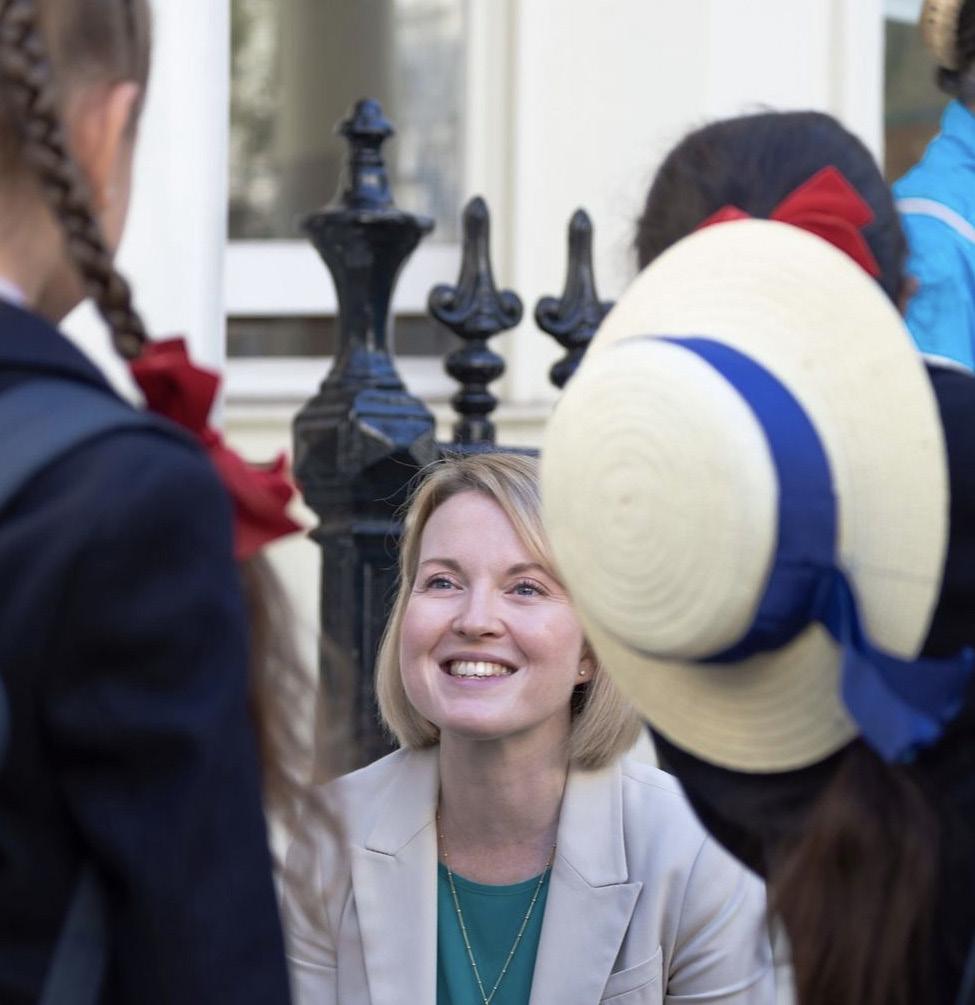
The thirteen minutes I spent chatting with Miss Wallace were a summary of the bright future that Queen’s Gate is following as Miss Wallace’s visions become tangible, and this profile is hopefully amongst a lengthy archive of the 1891 Journal issues to come. I feel reminded of the balance that Queen’s Gate has to offer, one which allows each individual to grasp
the change and chance that the wider world has to offer, that sets one on the journey to find who you are meant to be.
On Monday 6th February, I visited the Frantic Assembly version of Othello at the Lyric theatre in Hammersmith with my drama class. I was intrigued by how this production of Frantic Assembly would portray their version of Othello, as they provide a modern interpretation of this beloved classical play. Set in a worn-down bar, rather than an archaic tower, the Frantic Assembly cast created a production of exuberant gestures, ear-splitting dialogue, and scenes too busy to follow. Once the performance began, the stage erupted into a symphony of colours and pulsing music, with the cast entering the stage full of energy. Almost immediately, the actors started to perform a variety of movements that conformed to the unique attributes of Frantic Assembly. I noticed that two of the actors who played Iago and Roderigo seamlessly executed the Frantic Assembly chair duet, as they moved around two chairs without breaking free of one another. However, although these movements were effectively presented through their physicality, the flashing lights and deafening music that contributed to this intense opening made me question whether their movement was impressive or merely am-
Cecily Morrisseyplified by their environment. Thus, although this was a very splendid opening to the play, I felt that due to the overlapping movement that the cast performed, the opening scene felt sporadic, and it suddenly felt as though there was little meaning behind their comical movement. Nonetheless, I appreciated that the actors had immersed themselves in the performance, which ultimately helped the audience to engage with them, despite my initial confusion as to what the actors were intending to convey. Throughout the performance the cast continued to display these flamboyant Frantic Assembly sequences, which fortunately became more tolerable. What I did find compelling was the use of a moving wall that was placed on the set, utilised to present the character Cassio when he was drunk. This moving wall caught Cassio’s fall which encapsulated the disorientation that he was experiencing. Furthermore, Frantic Assembly-inspired movement also highlighted Cassio’s drunkenness through actors who played Iago, Roderigo and Montano
 Tiana Wadhawan
Tiana Wadhawan
 Matilda Whitaker
Matilda Whitaker
strategically lifting Cassio off the stage and consciously carrying him through a sequence of dance. This was achieved by handing Cassio’s feet, legs and arms to the other actors on stage without let-ting him touch the floor, symbolising Cassio’s sensation of floating and his perplexed feelings.
One of the most thought-provoking parts of the play, as well as one of the few moments where the only characters on stage were women, was the interaction between Desdemona and Emilia where they discuss marital infidelity. In this scene, Desdemona argues that no woman would ever be unfaithful towards her husband, yet Emilia adds that women have the same desires as men. I felt that this scene was significant as Othello was set in the 16th century, so Emilia’s comment would have perhaps been deemed as “unconventional” as women did not receive the same representation in expressing these views in society. Thus, given that this production of the play is a modern interpretation, it is interesting to consider the extent of how prevalent these views are now. Admittedly, I found that one of the reasons why I was captivated by this specific scene was because there was no sudden break into the Frantic Assembly movement. I believe that the
issue was that too many of the scenes involved these intense sequences, which resulted in the scenes with no Frantic Assembly movement feeling either less engrossing for the audience, or – in my case – more enveloping, as I could fully absorb and understand the context going on in those scenes. Without these pared down scenes, the play made little sense for someone who has neither read nor watched the classical version of Othello. Indeed, this modern take on Othello was not particularly engaging for me, but one of the aspects that I admired in this performance was Frantic Assembly’s ambitious perception of this fabled traditional play, as it allowed the reimagining of classic stories to mark their place in culture.
“it suddenly felt as though there was little meaning behind their comical movement.”
 Isabel Suddock
Isabel Suddock
ome people say I never shut up. I take that as a compliment. Naturally, I should introduce myself. A start to the story. The fuel for the creativity humans so desperately need. I would formally say hello, but you have known me all your life. After all, I’m the essence of your soul. Anyhow, I will gladly present myself in a creative manner. Let’s see – where to begin? I have so many ideas. I believe you would say that I’m as original as a person’s heart. I’m a one-of-a-kind sparkle that lies within you. The voice that encourages you to go that extra mile, to think outside the box. Anyway, enough about me. I’m beginning to get self-absorbed – and that’s terrible for my ego. My purpose in this story is to take you to Paris, where the rain is starting to drizzle on a young girl’s view of the city. An important note: there are two factors that draw me to people, and they are the reason I travel so much in my line of work. I become enchanted (some may even say obsessed) with certain humans. It starts off with the eyes: the windows to your soul. Her eyes were a gorgeous blue, as deep and as meaningful as the ocean – how could I resist? Secondly, each person has a unique smell to them. To me, people smell of stories and experiences. I couldn’t care less about Chanel perfume – where’s the life in that? She smelled like dried rose petals, Parisian elegance, high heels on cobblestones, and late nights watching the Eiffel tower light up. Genuine, inspired, hopeful. I would be lying if I said I wasn’t captivated.
September 9th, 2060. Such a grey day. Her dark brown, nearly black hair danced in the wind, masking her pale face.
Talia was startled. Breeze, a good friend of Talia, was standing on the balcony next to her. A piece of Talia had been broken for the last few days, and this was the first time Breeze had tried to make conversation. It was Talia’s dream to be accepted for an internship at Dior, and she had been told she wasn’t good enough. It had rained on her parade. Now, it was back to serving coffee at an eccentric French café. Talia couldn’t even look at Breeze. Coffee?! How could she even think of bringing up coffee? Did she want to rub it in Talia’s face some more? Breeze’s tall figure retreated into the shadows of their apartment. She blamed this awkward encounter on me. She should be thanking me for getting her to bring up the difficult subject, as they would talk later, and Talia would find her passion again. Anyhow, I’ll try to keep my personal matters out of this.
Later, Talia joined Breeze inside. Our two best friends embraced and reassured each other it would all be okay. Glittering, nostalgic, warm. That’s how I see them. That’s how I feel them. Gracefully, they made a plan. The only thing is they forgot to factor me in (I can change a situation a lot). Under the beauty of their bond, there would be betrayal and secrecy, but in the end their dreams would come true. I love hugs, especially the one Talia and Breeze shared, as after twenty-three years of pushing me away, she finally felt safe enough to let me in. And let me tell you, I had so many ideas. Talia was the muse; I was the artist. The canvas is no longer blank.

A visionary movie is one which anticipates audience fascination with a particular combination of themes and cinematic style, thereby giving rise to a new sub-genre of movie. Three examples of visionary movies would be Dr. No, which created the genre of glamorous international espionage; Star Wars, which introduced the sub-genre of Manichaean supernature into science fiction, and The Godfather, which gave rise to a number of films addressing the complicated moral codes of the mafia.
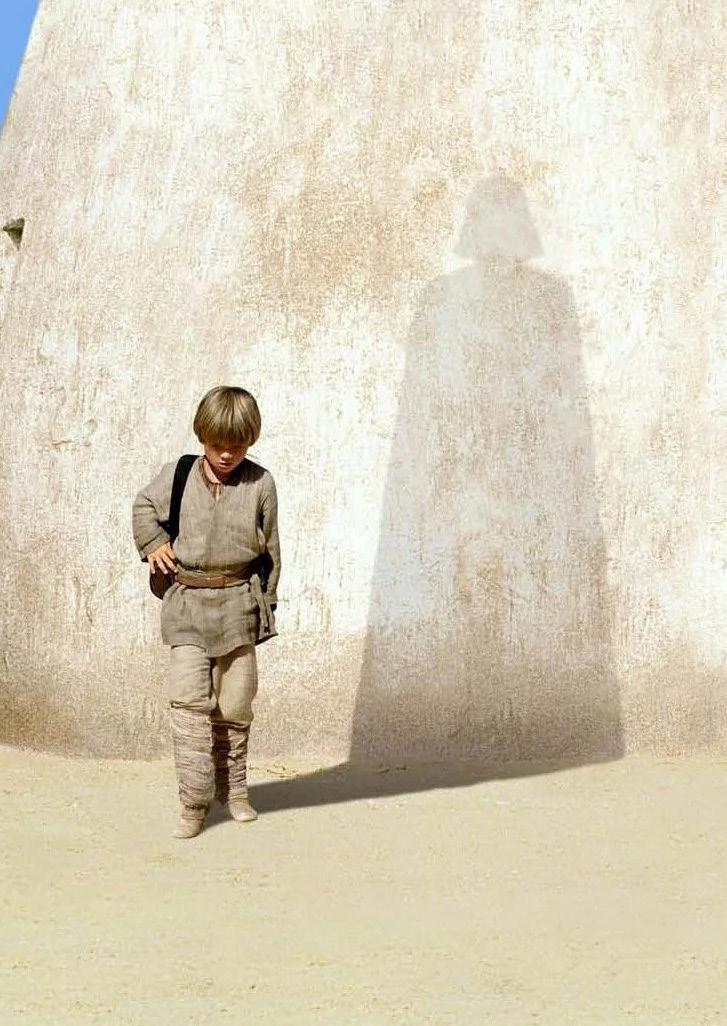 photo - Lucasfilm
photo - Lucasfilm
 Directed by Terence Young (1962)
Directed by Terence Young (1962)
The first James Bond film, Dr. No (1962, directed by Terence Young) created an explosion (no pun intended) of espionage movies in the mid to late 1960s, and created the ‘eurospy’ sub-genre. It introduced a sophisticated, combative yet seductive character, who travels to exotic and glamorous locations where, whilst overcoming villains, he is desired by glamorous women.
Consider the iconic scene, which still appears on posters today, of Ursula Andress emerging, bikini-clad, from the Jamaican sea. Whilst sexist to a modern audience, it presented a glamour that ordinary people aspired to, women and men, and anticipated increasingly liberal attitudes to sexual themes that were introduced by the ‘swinging sixties’. Dr. No also appealed to materialistic attitudes: cinema audiences were able to see international locations on screen at a time when international travel was only accessible to a wealthy minority –known then and for decades afterwards as the ‘jet set’ – which fascinated the audience. If you think of any film you have seen with ‘sexy’ interactions between a leading man and a strong woman, set in glamorous international locations – that film owes a debt to the visionary Dr. No
Furthermore, Bond’s ingenuity – his ability to utilise all items around him to his advantage in combat – further makes his character appeal to the audience. His collection of gadgets (Dr. No introduced audiences to Geiger counters and cyanide cigarettes), was a visionary anticipation of how technological advances, even in the form of hand-held devices, were beginning to empower our lives.
Another visionary element of Dr. No is that the chief villain possesses the combination of ruthlessness, power and technology that can threaten the entire world, not just his immediate environment. A month after Dr. No was released in cinemas, world peace was threatened by the Cuban Missile Crisis, and the espionage genre adopted the idea that to intrigue an audience, the scale of threat from the leading antagonist must be huge in scope. Any film where the lead villain is described as an ‘evil genius’ owes a debt to the visionary Dr. No. Finally, Dr. No had the vision to see that audiences wanted the theme of using ingenuity and violence to defeat a threat, to be punctuated with humour. This provided not only comic relief but enhanced the attractiveness of the ‘unflappable‘ hero. The trope of intense action, followed by an amusing one-lin-
Dr No. Poster; Artist - Mitchell Hooks, Designer - David Chasmaner from the hero (consider subsequent film franchises such as Indiana Jones or Beverley Hills Cop) pays homage to Dr. No. Indeed, Dr. No not only spawned a series of 25 films (and counting), but other hugely popular film series, such as the Jason Bourne films, take more than just the hero’s initials from James Bond. They take a hero with great intelligence, supported by gadgetry but also his own ingenuity, who is ruthless yet morally grounded, disobedient yet fundamentally loyal to authority, combative and stunt-driven yet also witty, and constantly moving from one glamorous international location to the next. These films, and many others like them, all derive from the visionary Dr. No
Science fiction (Sci-Fi) was already an established genre, but Star Wars (directed by George Lucas, 1977) introduced new themes into the genre, and was visionary for understanding how these would resonate with multi-generational and international audiences. The established Sci-Fi genre dealt with the potential threat from alien races, arriving
with highly advanced technology to threaten great conflict. However, Star Wars established a Manichean conflict between good and evil. The conflict between the ‘Rebellion’ and the ‘Empire’ was not simply political and martial, but theological; with one ‘good’ religion (the Jedi) locked in eternal conflict with one ‘bad’ religion (the Sith). Yet it avoided a dull simplicity by introducing the theme of temptation – the messianic Luke is tempted to ‘turn to the dark side’ by its leader Darth Vader, arguably the most iconic villain in cinema history – and the theme of disobedience: Han Solo is free of spiritualism and has profited from smuggling, yet becomes increasingly committed to the Rebellion and the cause of good. Moreover, beyond this Manichean theme, Star Wars was visionary in anticipating our desire for ever grander special effects – from laser battles in space to a gamut of alien species, each with its own physical features and technology. Star Wars did not only spawn a series of sequels, then prequels, and then side stories, but its visionary status is underscored by the film franchises it gave rise to. The themes George Lucas brought to Star Wars are evident in the modern Star Trek films (where Kirk echoes the disobedient Solo, and Spock echoes the committedly spiritual Luke), the Dune trilogy now underway (where the Fremen rebellion is led by the messianic Paul), and even the Lord of the Rings trilogy – which dramatizes a novel that considerably predates Star Wars, but one wonders if this novel would have made a three-part film, with its spiritually committed Frodo, his rule-breaking hobbit companions, and the messiah-figure Aragorn – had Star Wars not proven the cinematic appeal of these themes and characters.
Finally, I would highlight The Godfather (Directed by Francis Ford Coppola 1972) as visionary. The ‘Mafia film’ genre already existed, but why has the original film Scarface (Howard Hawks, 1932) not lasted? Its central villain is not multi-layered, whereas The Godfather introduced moral complexity. The Godfather, Vito Corleone, is an organised crime boss, responsible for bribery and murder, but the typical audience is not morally repulsed by him. This is because he bribes those already corrupted, his murder victims are ruthless and unethical men, and he is not amoral. Indeed, the mafia within The Godfather trilogy live by a moral code that is not the moral code of mainstream society (it promotes violent vengeance for example, and the withholding of information relating to any crime from the police), but it is nonetheless a moral code that can be understood. Furthermore, The Godfather elevated its primary criminal characters to a level of wealth and sophistication that still appeals to audiences. Vito and his successor Michael wear elegant but understated suits, and they speak to al-
most everyone with calm respect. The trope of a US criminal with finer manners than a Senator, and a calm eloquence that belies the constant threat of violence, derives from The Godfather The award winning films of Martin Scorcese and Brian de Palma, or the hugely popular series The Sopranos, would never have been made if the visionary Godfather had not proved the wider fascination with the Mafia sub-culture.
To conclude, visionary cinema anticipates human fascination with themes and character traits that are not already established in a genre; their popularity creates a new sub-genre. These three films may not be the greatest movies ever made, but in the style of film they spawned, they were truly visionary.
 Marlon Brando in The Godfather photo - Paramount/Kobal/Shutterstock
Marlon Brando in The Godfather photo - Paramount/Kobal/Shutterstock

I saw him. It.
It turned towards me. Skin mottled green, peppered with black misshapen holes which water still trickled from.
It stared at me. Eyes black as an endless cave.
It lowered itself onto all fours
Limbs gangly and bent awkwardly away from its body.
It stepped towards me.
I had been warned.
‘Darling. Stay away from the swamp.’
I had heard stories.
‘That poor Marshall boy. He was always so friendly.’
I had been told legends.
‘And then it rose out of the murky water, thick black liquid streaming from his dark eyes. Ready to hunt.’
I had been warned.
I had not listened.
“For where there’s WILL,
There’s WOMEN and where
there’s women, there is
FOREVER A WAY.”
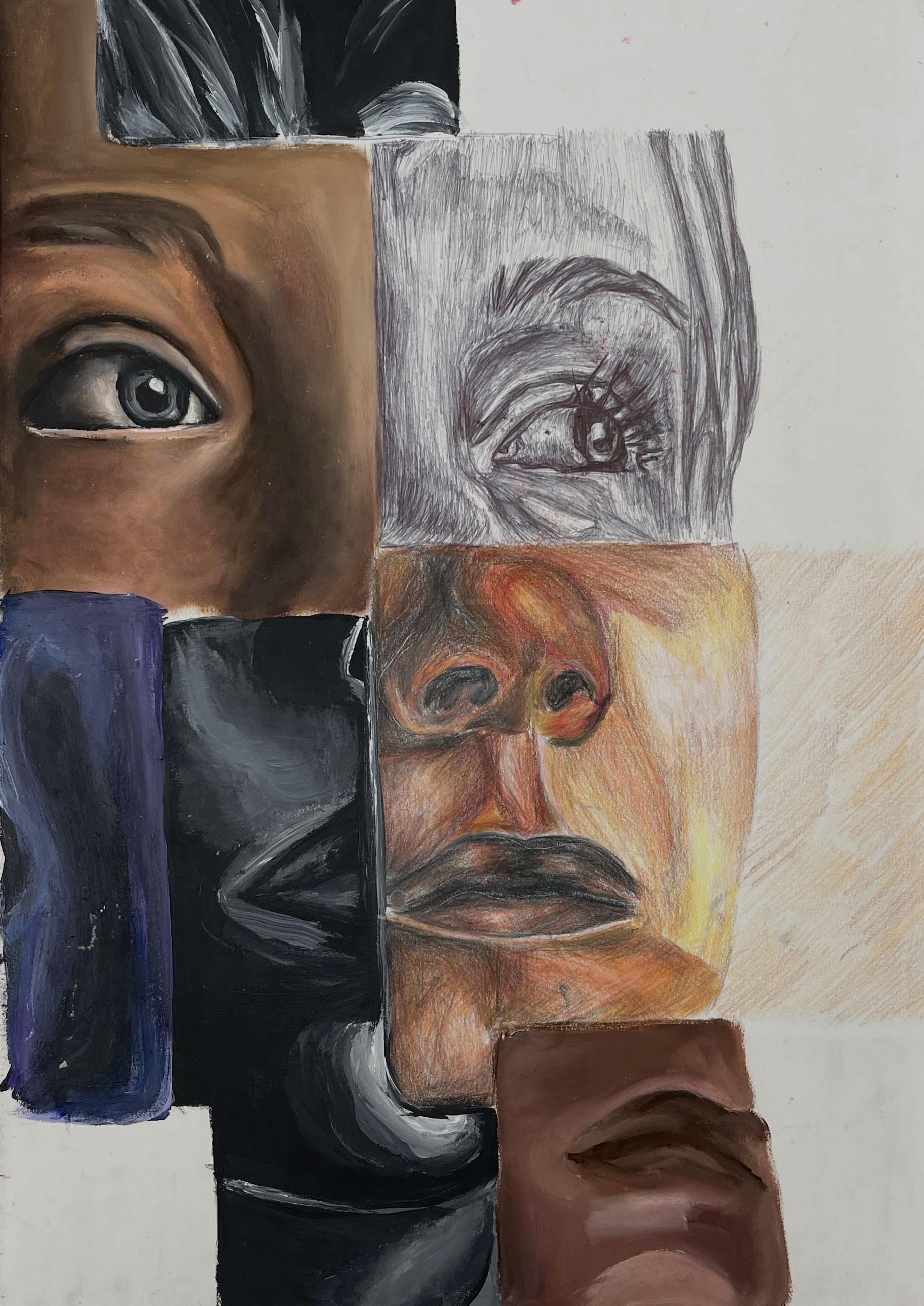 Ophelia Mayhew
Lara Villar-Homer
Ophelia Mayhew
Lara Villar-Homer
We tell you ‘we won’t forget’
But we do
Your names, your stories
How you suffered, how you fought
How you lost
Challenged against powerful compositions of muscle and might
Did you ever stand a chance?
Hands crawling, flailing
Aimlessly grabbing for air, Scarcely visible through the narrow slits in the seemingly unbreakable wall
Legs kicking desperately trying to defeat this barrier of injustice standing between us
Faces covered, voices yelling, barely heard, muffled yet piercing, ‘Let us be free’.
Disclaimer: Due to the themes and issues discussed in this novel, please be advised that it is recommended for those who are 16 and over.
It seems a basic enough premise, on first reading: a woman wakes up one day and decides she no longer wants to eat meat. One might ask: how can anyone make a novel from that? Yet that is precisely what Han Kang has done – and contrary to what one might think, this novel is less about the environmental and moral questions raised around consuming meat, but instead looks unabashedly at human choice – who is allowed to make those choices, and who is not.
The background: Yeong-hye is a young woman living in Seoul with her husband, Mr. Cheong. The first part, told from his perspective, quickly informs the reader that Yeong-hye is ‘completely unremarkable in any way’. What irony when, mere pages later, he wakes for work to find his wife standing in the fridge – hair dishevelled, night dress clinging to her body, meat scattered around the floor – having decided to become vegetarian because ‘[she] had a dream’.
Mr. Cheong’s attempts to adjust to a vegetarian way of life do not go well. An embarrassing work dinner and his wife becoming thinner by the day lead him to call her family for an intervention. After an effort led by her father to forcefeed her meat by pinning her down, Yeong-hye tries to take her own life in an act of desperation.
And that’s just part one.
There are two striking things about this novel. Firstly, Yeong-hye is never given access to the reader to tell her side of the story. The novel is told in three parts, in third person omniscient narrative, with moments of free-indirect discourse. The focus of each section, however, is never Yeong-hye’s voice: section one focuses on her husband, Mr. Cheong; section two follows Yeong-hye’s brother-in law as he pursues an erotic fantasy of her; the final section follows Yeong-hye’s sister, In-hye. Throughout the narrative, Yeong-hye’s actions and words are merely passed to us second- or third-hand, through everyone else’s interpretations of her behaviours, words, and thoughts. Indeed, Yeong-hye is simply ‘my wife’ in a narrative offered by a cold, detached husband, his tone lacking any empathy or personal touch. To him, she is no more than an annoying possession. In part two, the way in which In-hye’s husband talks about Yeong-hye is nothing short of predatory at certain points. And in part three, In-hye seems to metaphorically hold up her hands in despair, helpless and perhaps afraid to try and help her sister out of the trauma she is suffering.
The thing is, Yeong-hye’s decision to become vegetarian is one she makes on quite simple terms. Yeong-hye’s dream consists sometimes of her being covered in an animal’s blood (one it is implied she has butchered) and, in one instance, she is the animal herself, being chased relentlessly by a hunter.
That scenario played out even once in a dream is nightmare fuel enough to warn someone off meat, but repeated showings and iterations would be enough to send anyone mad. The dream sequence is the only flash of Yeong-hye’s traumatised narrative voice the reader gets a glimpse of, in fact – it is fractured and scattered across the novel. One would think that perhaps those closest to her might stop, think, and…ask her what’s bothering her
But in all of this, the voice of concern and curiosity from her relatives stays surreptitiously silent.
And this is where the second striking thing about this novel comes in: no one seems to care about Yeong-hye’s reasons for becoming vegetarian. Her husband, and family, in fact, try to forcibly turn her back to her previous omnivore habits in part one; in part two she is exploited for her mental fragility by a man for his own sexual gratification. There is some glimpse of hope in part three, in which her sister visits her and moves her to a different hospital, but this action is completed without any real motive or understanding of Yeong-hye’s mental state.
So, the question is this: why is it that the cast of The Vegetarian feel so compelled to control, police, and alter Yeong-hye’s behaviour?
Perhaps it is a question of social expectation. Written in 2004, vegetarianism was not myth or legend, but it was certainly not as prolific as it is now. An estimated 18% of the world practice vegetarianism, with the number growing annually due to environmental concerns and a growing awareness of the impact of meat on the planet. Korean cuisine, however, is strongly meat-based, and it is closely linked to class (Mr. Cheong’s outrage at his wife’s fridge-mania is partly due to how much some of the cuts of meat cost; her mother, too, tells Yeong-hye off in the
novel for wasting an expensive and rare cut of meat).
However, the suggestion given from the outset of the novel by Mr. Cheong is much more on the nose, and far more insidious: Yeong-hye is a woman. A plain, typical, controllable woman at that. There is, if one remembers, ‘nothing remarkable’ about her – and rather than this being a fault, it is something which is seen as a positive and desirable trait in Yeong-hye. There is a suggestion that it is not her vegetarianism that is the issue, but instead her desire for autonomy. Indeed, the novel seems to set up a challenge to a value system that demands conformity. Yeong-hye’s ability to make her own decisions, and her audacity to then act on those decisions, is at the heart of this novel.
The refusal to respect a woman’s decisions about her own life and body are, sadly, far too close to home in a world that restricts women’s rights in several ways (this writer directs you to the next article in this issue, which elaborates more on this), and one can’t help but question whether the scrutiny and restriction would be quite so obvious if Yeong-hye were a man. One could say much here about the male gaze and the violence – both literal and symbolic – that Yeong-hye endures at the hands of the men in her life (husband, father, brother-in-law, doctor). And it is In-hye’s realisation at the end of the novel, perhaps, that poignantly captures the grip of the patriarchy on women, realising that she, and her sister, were always ‘child[ren] who had never lived’.
Ultimately, this is a novel that asks the reader whether they will perpetuate this narrative – of controlling women’s behaviour, even seemingly inconsequential things like their choice of diet – or whether we will choose to respect their wishes to live their lives just as they choose.
There are certain events in life where you remember every detail of what happened. I was in Paris for the weekend during June of 2022 and my friend and I had just gotten back from exploring the city. Exhausted, I fell onto the hotel room bed and turned to my phone. I sat up again quickly though, shocked by the shameless buzz of news alerts. Breaking news: Supreme Court overturns Roe v. Wade, ending right to abortion upheld for decades. I was halfway across the world, in a country – nonetheless a whole continent, even – where abortion was a right. And yet I felt an unease, an unsafety. I am a woman. I am an American.
I am a human being. Of course, I felt affected.
Roe v. Wade being overturned is too important not to talk about. Whilst at this present moment it places women back to being second-class citizens, it also threatens more for the future in the United States: contraception and same-sex marriage. This overturning of a basic human right is overruling any sense of respect a nation has for women, and more potently, with the US as the leading superpower, it is taking a stance which indicates that globally women will not be seen as equal either. The United States is taking a step back in time, one before that monumental day in 1973. Can we return to a time during Roe? Does this change, despite the hope of putting Roe back into place, mark something deeper?
The past three years, since Covid brought the world to a standstill where people stayed home
to save the lives of others, a sense of unity flourished. It felt like we evaluated the moral injustice present, especially with regards to the Black Lives Matter movement which fights to end police brutality and confront systemic racism. And yet, whilst all this progress was happening, women did not realise their right to a choice would only survive for two more years. I find the word choice and Roe v. Wade synonymous. If you look beyond the outright reason that Roe v. Wade was established for giving women a constitutional right to an abortion, you will see the broader, more important value it held: giving women autonomy over their own bodies. Why should six men, and one woman, make a life changing choice...for someone else? This enables questions, like how far the Government will go to control its people, to dominate. In an article I read by NPR, Evan Greer, the director of the digital rights advocacy group Fight for the Future, discusses how menstrual cycle tracking apps, like Flo or Clue, can be used to connect someone to an abortion. Women that are using their phone whilst waiting in abortion clinics are under threat of being located as well. States, such as Texas, where abortions have been made illegal after cardiac activity is detectable

– typically after six weeks – under their SB 8 law, encourages other citizens to report those that might be seeking an abortion. This allows for a dark period in the United States to thrive, one of distrust and fear.
Jessica Valentini publishes a daily newsletter, titled Abortion, Every Day which documents the real suffering that real women are undergoing in post-Roe America. When a situation feels too distressing to keep up with, or too wrong to believe, it is an indication that there is nothing more important than engaging with that news. The destruction that was born from Roe v. Wade is understood when one realises that it is real women who are living through it and becoming the damage. A woman in Wisconsin was left bleeding for ten days after an incomplete miscarriage, due to doctors being told they could not
treat ectopic pregnancies until they ruptured, because what if? Nancy Davis, a woman in Louisiana, was denied an abortion when her fetus was missing a part of its head, because what if? This summer, although deemed a “hoax” by Republicans, a fourteen-year-old girl in Ohio was raped, became pregnant and was denied an abortion, because what if?
There is too much complexity in pregnancy for it to be governed by simplicity. Pregnan-
cy is an individual experience that involves nobody but the mother. Laws cannot depend on vagueness and ambiguity for something so obvious and indisputable: allowing a woman to choose what she wants to do with her own body. The overturning of Roe v. Wade does not end at women though. Doctors and healthcare lawyers are severely experiencing the knock-on effects as well. In an article published by TIME, Abigail Abrams documents the fragility that has arisen between doctor-patient relationships and the punishments which have pushed doctors that perform abortions, in states like Texas or Louisiana, into feeling like “felons”. Doctors have become silenced and guilt-ridden from fear of up to life in prison and $100,000 fines or accepting the mother’s choice. Abrams further discusses how in Dallas, patients had to wait “an average of nine days for their pregnancy complications to be considered life threatening enough to qualify for an abortion”. These delays pushed women’s lives further over the line and resulted in much more serious health consequences; sepsis, haemorrhaging and in one case, a hysterectomy being performed. This indirectly equates abortion with something women need to be tortured for. Making abortions illegal alludes to a belief that women shrug an abortion off their shoulders like it is an average day. Except it is not. It is a painful, heart-wrenching decision that only scars deeper when women become criminalised for choosing it.
To say that it did not feel surprising that it
“There is too much complexity in pregnancy for it to be governed by simplicity.”
was men who voted to overturn Roe v. Wade is sad. The fact that it was a woman as well, Amy Coney Barrett, is sadder. Almost like a betrayal. It is not wrong to not want to get an abortion. That is your choice. But what is wrong is when that choice shapes into a limit, one which is too exclusive to truly appreciate people as individuals. I have come across people in life who call themselves ‘feminists’, and yet want to impose their belief of abortion being wrong upon every single woman. Feminism is a verb: you are actively engaging with society to include women in an equal and positive way. However, when a woman cannot hold agency in her life, questions of whether she is even “allowed” to do anything arise, and feminism is eliminated. It seems the only argument used to remove abortion as a woman’s constitutional right is religious belief. With Evangelism so widespread in the United States, and involving itself too much in a government which claims to separate Church from State, I see it as hypocritical to say that women should be stripped of freedom because God deems it wrong. In times like this, it is more relevant to take away a core teaching from the Bible, “thou shalt love thy neighbour as thyself”. It becomes dangerous to live by that and yet disregard women as your “neighbour”, who might be living exceptional circumstances that call for an abortion. Life is sacred – yet it is ironic that the same people who harass women entering pharmacies for abortions are also attending pro-gun rallies, forgetting that the leading cause of death in children in the United States as of 2020 is gun violence. Over the last 25 years, 60 countries have liberalised abortions: in 2022, Colombia decriminalised abortions; in 2020, Argentina legalised abortions; 2018, so did Ireland. These are extremely recent, positive changes that may be under threat because of the United States joining three other countries (El Salvador, Nicaragua and Poland)
who took major steps back for abortion rights since 1944, as per the Center for Reproductive Rights. A ripple may be triggered amongst these nations, especially with the respected influence that the United States possesses. I am only sixteen, and not intending on becoming a mother anytime soon, but I still feel exposed to the pain – all the way across the Atlantic, in the United Kingdom. This was the first time I truly took an interest in politics and recognised how in order for change to take place, one must be active with the world – even if what is current is hopeful or distressing. I also came to realise how important it is to have an opinion, and how as I am getting older that opinion is more crucial and bears more weight. The overturning of Roe v. Wade welcomed that for me and many of my friends, as we came to terms with how opinion can become figurative of using your voice and creating change.
‘Against abortion? Have a vasectomy.’, ‘Our bodies. Our abortions.’, ‘We will not go back.’ These are three of many slogans which flutter across abortion rights rallies. There is no better time to emphasise the ‘we’ in perhaps one of the more popular slogans, ‘we will not go back’, because although we did, it still empowers the change that working together enables. Now marks a period in history where not being political is ignorant and misplaced. Women need a choice, have a right to a choice, and will not stop fighting for a choice.
We wanted the women’s section to involve the whole school - after all, it is something we all share. These were the responses, from both students and teachers, on “what womanhood means to you” .
“there is no one answer, it’s different for every woman”
Ms.
Sleator“beautiful”
Isha Guha-Thakurta
“unfair at times, empowering at others”
Ivana Rubio
“Responsibility, freedom”
Leyi Shao
Sofia Vlachopoulou “empowering”
Finola Ma
“Independent”
Tsz Yuet Luo
“proud”
Tallulah Wood
“Power”
“Being a woman means being resistant and unapologetic”
Daniela Mitina
“Womanhood, for me, means a unification of girls all around the world to support each other and spread love and care throughout thr world. ”
Marcella Aprile Borriello“solidarity, care and fun”
Ms. Taylor
“Freeing”
Zeina Hosni
“community”
Valentina Zorzi
“I don’t know, I was born like this”
S
ophia Hmicho“Womanhood means empowerment, equality, confidence, strength and greatness”
Melanie Zhmotova
“staying strong.”
Ania Jaffke Barrilero
“To
Alara
“a
“Confidence”
Evelyn Boath
“Happy”
Nefeli Siokos
“Being
Mia Bodereau
“self belief”
Ms. Gover
“Rollercoaster”
Maya Weiler
“power”
Zeina Sebati
“strength”
Kitty Searle
“femininity”
Rayya Hameed
“multitasking”
Frau Atufe-Kreuth
“strength”
Santa De Marco
“The fact that my own freedom and way of life now, all the opportunities I’m able to enjoy now, are the results of centuries of struggles and sacrifices by the many courageous women who stood up to patriarchal dominance.”
Mrs Poirot
“sympathy”
Molly Philippa Burgess
“Empowering”
Tiana Wadhawan
“Being
Lara
“community”
Ruby-Rae Kemp
“Embracing and celebrating the strength and power of women.”
Mr Spicer
yourself when everyone tells you not to be.”
Villar-Homer
conceal deep knowledge, perception and experience”
Clayton
yourself/ freedom of choice”
community - one that will forever be there.”
Gioia Duenas-Dahms
The ideology and praise of female artists has surrounded me all my life and will continue to do so. With a family who is religiously interested in the field, I have also fallen into the creative trap under the encouraging influence of my grandmother, an art extraordinaire. Her persuasive ways have landed me here, working alongside my fellow female artists in the lively art department at Queen’s Gate. The form of Art has forever been known as a voice of expression for those who choose to create in that way. It is a visionary prospect for many to speak to the world through innovative thoughts, and to create a community where ideas are constantly utilised. This is exactly what was achieved by the female phenomenon I have chosen to speak on, as she initiated a stepladder for the talents of her kind. When I opted to write this feature on ‘Women in Art’, my mind was transfixed on only one female artist – one that has created a name for herself in the art industry and inspired many artists that have followed her, both male and female.
Helen Frankenthaler: a woman with an extraordinary gift that has made her a renowned household name beside fellow visionary females such as Georgia O’Keeffe and Frida Kahlo (a few of my favourites!). Frankenthaler’s creation of silk-stain paintings was an experience of its own as she embraced the joys of colour and the natural flow of her hand, a guide for her abstract expressionist paintings
Tiana Wadhawanwhich elevated the most elemental sensations. Being a native of New York City, Frankenthaler pursued her artistic studies at the Dalton School where she had the privilege of connecting with creators of her expertise such as Jackson Pollock, an artist that she was heavily influenced by. Pollock showcased his works by flinging globs of paint around on large-scale canvases – a look Frankenthaler called ‘cooperation by chance’. Her ‘tweaked’ versions of Pollock’s paintings made Frankenthaler eminent beside the second generation of post-war American abstract painters: she is widely referenced for playing a prominent role in the artistic transition from her initial style of Abstract Expressionism to Colour Field painting. Her style first explored more sedated affairs, which later deepened into richer colours with a brighter nature, as she experimented with various mediums, evolving throughout her six-decade career.
Frankenthaler’s revolutionary invention of the ‘soak-stain’ technique in the 1950’s involved using thinned oil paints, soaked directly into unprimed canvases that were reminiscent of watercolours. Inspired by Pollock, she often painted with her canvases lying flat on the floor.
This technique, from which the Colour Field painting originated, evoked the landscaped subjects that Frankenthaler often mentioned in her titles and expanded the possibilities of abstract painting for the painters of future generations. Being a young artist, learning Frankenthaler’s unique technique has allowed me to expand from my constant use of mixed media to allowing my hand to have a mind of its own and create paths of hues across a blank canvas. One of my favourite works by Frankenthaler named ‘Tutti Frutti’ is one of her many iconic compositions that portrays a giant clash of various vibrant pigments, symbolic of her appreciation of fluidity in painting. It consists of round, organic shapes that she experimented with as her career went on. The blurred areas where the colours came to meet was referred to by Frankenthaler as ‘well-ordered collisions’ as she experimented with her self-made technique to constitute this painting, defining her visionary role as an artist. Although Frankenthaler often received insults comparing her canvases to “wet rags”, it is now hard to imagine anyone speaking these anymore, considering she was one of the most prominent – and one of few – female Abstract Expressionists of her own time. However, despite being a pioneer, she did not indulge in the title of ‘woman artist’. Her philosophy was guided by the thought of gender roles determining the height of talent – although we can all agree that Frankenthaler’s notable title did not only come from her biological label, but also because of her weighted impact on the art industry. This follows with the question of gender, nevertheless framing her career as well. Being a female artist in a time like Frankenthaler’s was challenging in a
way that made one want to set oneself apart from a male-dominated society, which is precisely what Frankenthaler accomplished. The phrase ‘Female Artist’ is a common concept in our modern world and something which I aspire to be. I learn from the women in my life and those in history who have paved the way in allowing this position to hold the power it does today. Frankenthaler is one of many to idealise: she stunned people, proving that a woman can equally do exactly what a man can – be an artistic visionary.
 ‘Tutti Frutti’ (1966) Helen Frankenthaler
Ophelia Mayhew
‘Tutti Frutti’ (1966) Helen Frankenthaler
Ophelia Mayhew
This was once said by the notorious – and arguably the greatest – architect of British style: Dame Vivienne Westwood. Throughout Westwood’s life, she carved her own path in the fashion industry by merging punk representations and traditional feminine ideas. The current outpouring of love we’ve seen towards the recently deceased Westwood is a testament to how she is one of the most renowned icons of British fashion. She began by designing and making the classic Teddy boy style for Malcom McLaren, and this concluded in 1971 with a boutique opening on the King’s Road in Chelsea titled ‘Let it Rock’. Westwood’s interest then turned to biker clothing and leather. In 2019, her London Fashion Week runway show exemplified her talent for demonstrating how fashion is more than fabrics and items, and how it has a voice and an impact on people – perhaps more than they may initially think. Her models read poetry and speeches, merging fashion with culture and politics, grabbing the attention of the audience and making her mark in the fashion industry once again.

“Intelligence is composed mostly of imagination, insight, things that have nothing to do with reason.”
Another inspirational woman in fashion is Isabel Marant, a French fashion designer known for clothes that women can wear repeatedly to feel comfortable, yet bohemian. When Marant was a child living in Paris, she would love to dress up and borrow from her father’s closet, wearing his silk dressing gowns and slippers –alongside his old jumpers – as dresses. From an early age, she played with the boundaries of fashion and always felt as if she was part of it. According to The Biography of Fashion, “her laid back aesthetic is littered with rock girl references, tactile fabrics and a Parisian’s attitude to silhouette: long and lean or louche and short.”
This year, Isabella Weatherby, the founder of Peachy Den, was placed on the Forbes 30 Under 30 list for her up-and-coming brand of the same name. Set up in 2019, the brand uses fabrics entirely sourced in the UK and is manned by a small team in London. What began as a side-hustle turned into a job, where a restock of cargo pants gained $160,000 in just 24 hours. When setting up her brand, Weatherby noticed a gap in the market for clothing that would transition from day to night and could be dressed up and down. When asked where Weatherby found her inspiration, she stated to Forbes that “I’ve never really looked to the industry for inspiration […] Rather, I look to the women around me for inspiration.”

Looking at these designers, they demonstrate a whimsical, elegant, punky, and fun exploration of designs by using cultural themes, events, and other inspiring things they have been exposed to. Their individual and juxtaposing ways of adding to the styles of fashion is the reason that these women are inspirational to me.

 Skye Macintyre
Skye Macintyre
And God decreed an angel be sent down, “But may she go wingless so none may bow” They told me there’s no heaven; but her crown, Of pine and rose rests lightly ‘pon my brow, The heaven she speaks of I’ll never know, She found me with salt dust on my body, My heart remains corrupt and filled with snow, But yet she still comes to me with all and love.
The oceans bang their maritime war drums, A blue hydrangea floats upon the sea, She speaks to me with honey on her thumbs, Of love and how one day we’ll all be free, For now, let’s share this plum I’ve split for us, Alive, in love and young - let us eat thus.
In this interview series, 1891 gets to the crux of Queen’s Gate’s lifeline: our teachers. For this first issue, Tiana Wadhawan chats with Miss Cappella, Deputy Head of English and this journal’s supervisor.
Tiana Wadhawan What is one of your hidden talents?
Miss Cappella Well, I sing – but anyone who is taught by me already knows that because I do have a tendency to sing in lessons… but I’m also a dab hand in the kitchen – savoury or sweet!
TW What would the students be surprised to find out about you?
MC They might be surprised to learn that despite my appearance as an English teacher (and the obvious love of books that goes with it!) I am deeply interested in science – especially Psychology and Biology. I have a section on my shelf dedicated to science books, and did both at A level.
TW What are your top 3 favourite movies?
MC This is a tricky one and changes with my mood, the season, and sometimes the time of day! But movies I love and could keep going back to are Atonement, Chicago (I love a campy musical!) and The Shawshank Redemption.
TW If you were to take up a different role in the school, which one would it be and why?
MC I really enjoy my job – I haven’t ever really thought about what else I would do. I find helping Sixth Form
students with their university options and A level choices very rewarding – so perhaps a role where I would have the capacity to do that.
TW I know being an English teacher this is the craziest question to ask, but what is your favourite book? And if you can’t choose one, top 3?
MC Again, this is something I change almost every month! One of the greatest novels written in English, for its style, mastery of expression, and lyricism, is Lolita by Vladimir Nabokov for me. The subject matter is controversial for sure, but there is absolutely no arguing with Nabokov’s virtuosic writing style. Other favourites include The Great Gatsby (F. Scott Fitzgerald), Annihilation (Jeff Vandermeer), The Vegetarian (Han Kang) and Atonement (Ian McEwan). I am aware that’s more than one. And three. I never said I was good at following instructions!
TW What is your go-to ice cream flavour?
MC Pistachio. No contest.
TW Favourite thing to cook and why?
MC I really enjoy making baked eggs. I have a fab recipe that uses nduja in the base sauce, and it’s really fun to throw in different ingredients depending on what I have in the cupboard or fridge. It’s a re-
ally hearty meal that I originally learned from my dad – so it has a lot of sentimental meaning for me too.
TW What is your dream vacation?
MC Anything with a beach, a pool, and about 15 books piled up next to the sunbed!
TW Describe yourself in 3 words.

MC Confident, eccentric (only slightly), and compassionate.
TW What is your most embarrassing teaching moment you’re willing to share?
MC In an Upper Sixth class and one of the boys – let’s call him Tom – had recently developed a bit of a fascination with chinchillas (I am partly to blame for this – I have a strange artillery of random facts, a few of which centre on chinchillas. They take cute sand baths, and if you get them wet they can go mouldy and die). During a feedback task, Tom put his hand up, just at the time the Headmaster was standing in the doorway. He liked to do this – go on walks and see what was going in on lessons. I asked Tom for his contribution to the task, and he very proudly said ‘DID YOU KNOW that chinchillas can jump up to SIX FEET in the air?!’ The head looked at me, poked his head round the door, nodded at Tom, said nothing, and walked off. I collapsed on the floor and had to lie down for ten minutes, and then spent three hours thinking I was going to be sacked for not teaching my class English. Turned out the Head thought it was hilarious and then proceeded to share this information with three other members of staff as a ‘fun fact!’.
TW Being a young teacher, what ‘words of wisdom’ do you have for school and life in general to share with us students?
MC I think the one thing I wish someone had told me when I was at school was to follow my passions as far as they would take me. It’s
really, really hard to acquire new hobbies or pick up old hobbies once you’re an adult – and I wish I had taken more opportunities to try things when I was at school so that I had a greater range of interests I could pursue once I grew up. If you haven’t found something you love doing, keep trying new things – I promise there’s something out there for you, and I’m absolutely certain that when you get to adulthood you’ll be grateful for it!
TW What were your first impressions when you entered Queen’s Gate?
MC I really loved how friendly everyone was. On my interview day, every single person I met was so kind and warm, and I felt very at home here straight away. I’m pleased to say that that feeling hasn’t diminished at all now that I’ve been here a while.
TW Being our teacher guide at 1891, what do you envision for this student-led journal?
MC I think 1891 is a creative, open space for anyone to express themselves. Whether that is through art, discussion of media, poetry, or creative writing, I hope it maintains its unique fingerprint as a publication for the visionaries and creatives in the school. And I hope that everyone who reads it finds a little bit of themselves in the pages. It’s a place for free expression, collaboration, and innovation – and it’s been an honour to work on it with the team.
 Chloe Robertson
Chloe Robertson

 Eva Guseva
Eva Guseva
 Loretta Cloonan
Loretta Cloonan
